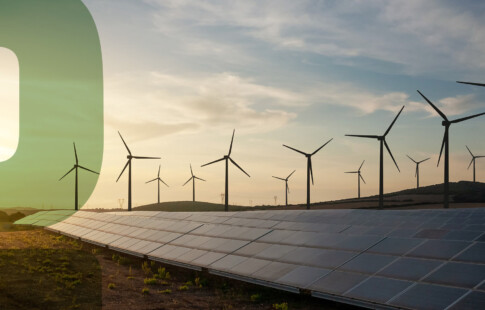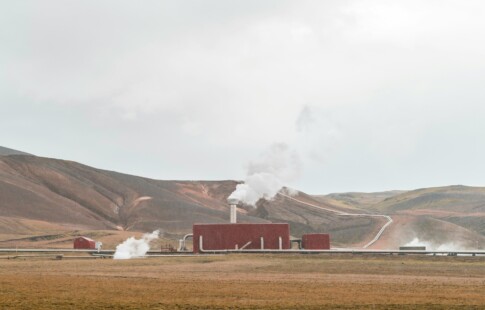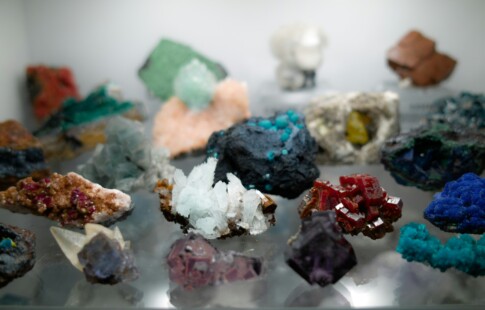
What Impact Would a Fourth Industrial Revolution Have on the Planet?
We are reader-supported. When you buy through links on our site, we may earn affiliate commission.
The first industrial revolution started in the 18th century, and most people know it as an era that spurred the development of the steam engine and contributed to more urbanization. Several other industrial revolutions followed, and a common thread among them was that each period had tremendous technological advances. We’re now in the fourth industrial revolution (4IR). How might it affect the Earth?
Professor Klaus Schwab, founder and executive chairman of the World Economic Forum, argues that it’s fundamentally different from previous revolutions. The earlier ones helped humans break free from their dependence on animals and gave them access to the digital world, plus furthered mass production. However, this era blends the physical, digital and biological worlds through a range of technologies.
Manufacturing Advances Could Help
Some manufacturing plants have room for improvement concerning the waste they generate and the carbon footprints they produce. However, technologies are making it easier for company leaders to make positive changes. For example, internet-connected sensors can track usage amounts for water and electricity, giving companies the baseline readings they need to fix issues and aid the planet.
Also, since connected devices typically give companies competitive advantages over those that don’t have them, many providers assist manufacturing executives with retrofitting old machines to make them work with the Internet of Things (IoT) or installing new equipment. Most of the time, those improved or new machines are better for the environment than outdated or older options.
Moreover, there has been an increase in manufacturing methods that are more sustainable. One of them is lean manufacturing, which focuses on waste reduction. In this case, waste doesn’t only mean excessive product, but anything that doesn’t add value for consumers. Lean manufacturing also has other positive aspects, such as cutting down on the distance products or employees travel.
IoT Technologies Are Advantageous for Environmental Monitoring
Another helpful thing about the 4IR and the environment is that researchers have abundant opportunities to use IoT sensors that collect environmental data and send it to a central interface. Then, scientists don’t have to travel to every location to retrieve information. It gets transmitted wirelessly and is usually stored in the cloud.
After that, it’s possible to gain insights about the planet, ranging from soil quality to air pollution levels. Members of a research team may also connect their information sources to big data analytics software that lets them track trends or even compare differences among multiple locations.
One of the main advances of big data platforms is that they can process gigantic amounts of information far faster than humans can alone. As such, people who specialize in environmental research could theoretically spend less time mining through the data and devote larger portions of their workdays toward taking action based on what the information shows.
Improper Device Disposal Harms the Environment
Schwab wrote a book about 4IR and emphasized that although this era brings benefits, it also has downsides. He stressed that humans must collaborate and put people first while remembering that the new technologies are first and foremost made by the people and for the people.
That’s a worthy point, but it’s necessary to dig deeper and think about how many of those devices could hurt the planet if people don’t throw them away correctly. Incorrect device disposal causes electronic waste, also known as e-waste.
A report from the United Nations warns that e-waste threatens human and environmental health. It also projects the amount of global e-waste to reach 52.2 metric tons by 2021.Fortunately, many electronics retailers have electronics disposal drop-off points. The key is to continually promote to consumers how necessary it is to throw away electronics responsibly. The easiest thing for most people to do is dispose of their electronics the same way they get rid of regular household trash. However, doing that can cause chemicals to leach into groundwater and dirt.
Could the 5G Network Hurt the Planet?
The rollout of the 5G network is already capturing headlines. Although it won’t reach mainstream availability until 2020 or later, many telecommunications providers are already carrying out tests. Thanks to promises of ultrafast speeds and virtually no latency, people are abuzz about the opportunities the advancement should bring. Indeed, 5G will facilitate the positive aspects of the 4IR on the environment mentioned above.
However, people are concerned about 5G for various reasons. Some of them worry about the radio waves it needs, especially since studies link radio-wave exposure to things like leaf necrosis in saplings, along with birds leaving their nests.
It’s too early to say if 5G will negatively impact the planet or how long it might take before it’s noticeable. Since individuals are already aware of possible problems, it’s up to scientists, legislators and other people in positions of authority to carefully watch for warning signs of damage and take prompt action to intervene if needed.
More Benefits and Risks on the Horizon
It’s not possible to evaluate all the effects — whether positive or negative — the fourth industrial revolution might have on the environment. As this time in history continues, it could have adverse outcomes for the planet. Conversely, though, much of this technological progress offers the tools needed to provide real, lasting benefits to the Earth.
Share on
Like what you read? Join other Environment.co readers!
Get the latest updates on our planet by subscribing to the Environment.co newsletter!
About the author

Jane Marsh
Starting from an early age, Jane Marsh loved all animals and became a budding environmentalist. Now, Jane works as the Editor-in-Chief of Environment.co where she covers topics related to climate policy, renewable energy, the food industry, and more.





